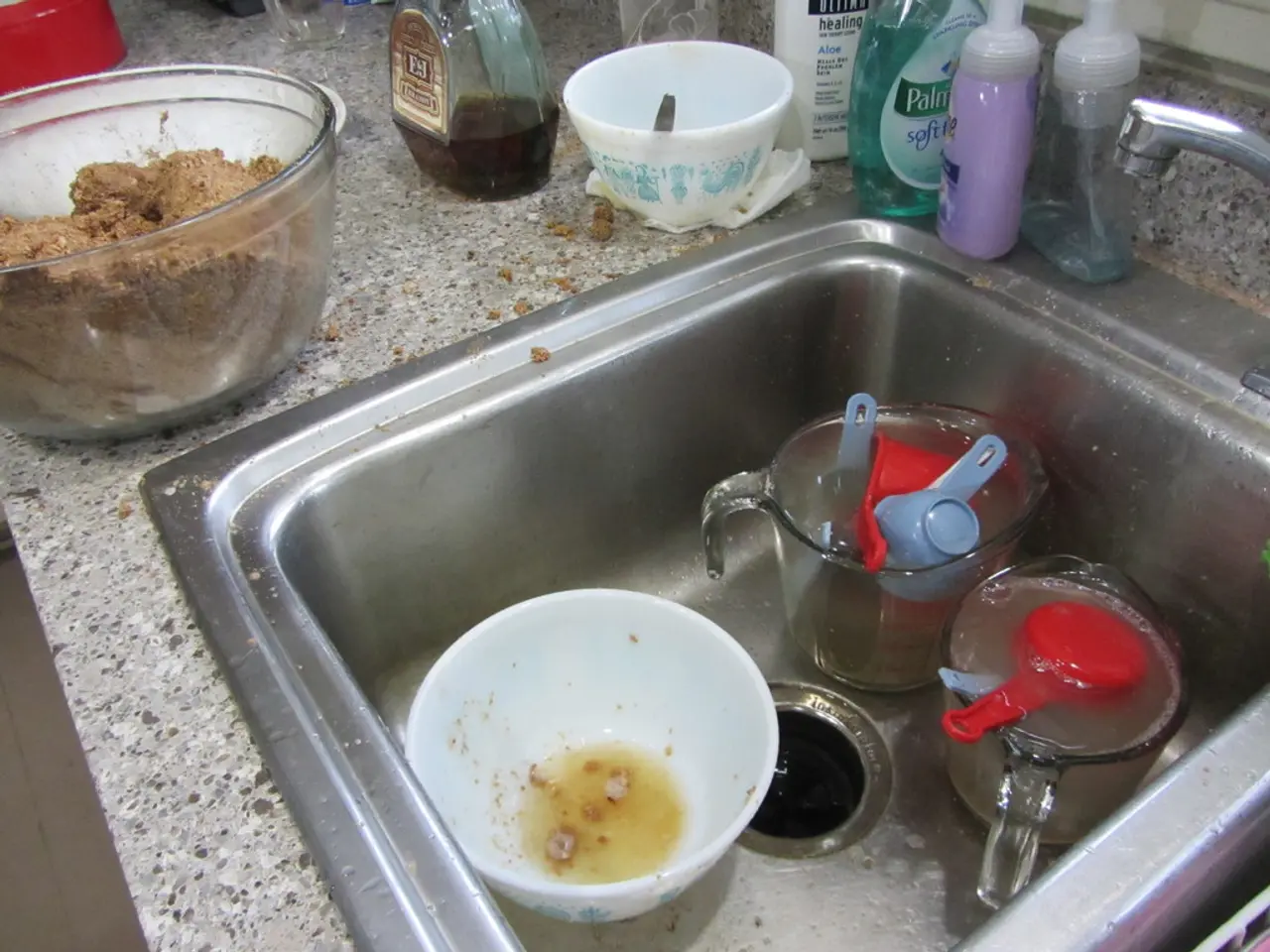Home Remedies for Fevers: Guidance for Various Age Groups
In the battle against illnesses, a fever is often the body's way of fighting off infections. This article provides a practical guide for safely managing fever at home, using a combination of hydration, fever-reducing medications, physical cooling methods, and supportive care.
Firstly, hydration is crucial in maintaining adequate fluid intake. Water, fruit juices, coconut water, soups, and even oral rehydration solutions (ORS) are recommended for both adults and children, especially for those suffering from illnesses like typhoid that may cause vomiting or diarrhea.
When it comes to fever-reducing medications, over-the-counter options like acetaminophen (paracetamol) and ibuprofen are safe when dosed appropriately. For children, gentle herbal options such as lemon balm and chamomile are considered safe and effective for reducing fever. Homeopathic remedies like Aconite, Bryonia Alba, Gelsemium, and Eupatorium Perfoliatum may also be used, but it's essential to consult a homeopathic doctor for individualized treatment.
Physical cooling methods, such as sponging with lukewarm water on the forehead, armpits, groin, feet, and hands, or applying a warm, damp washcloth to the forehead and changing it frequently, can help lower body temperature effectively.
Additional supportive care includes natural remedies such as ginger tea with honey and lemon for relief of symptoms like cough or sore throat, due to their anti-inflammatory and antimicrobial properties. Honey alone can soothe sore throats and coughs and may be given safely to children over one year of age.
It's important to monitor the fever and consult a healthcare provider if it persists for more than a few days, is very high, or if accompanied by serious symptoms. Avoid using aspirin in children due to the risk of Reye's syndrome.
In general, people should seek medical treatment for a child who is under 3 months old and has a fever of 100.4°F (38°C) or higher, is 3-6 months old and has a temperature of 102.2°F (39°C) or higher, has a fever that has lasted for longer than 5 days, has other signs of illness, such as a rash, has symptoms of dehydration, such as sunken eyes, a lack of tears when crying, or nappies that are not very wet, is not eating and seems generally unwell.
This combined approach ensures safe and effective fever management at home while supporting recovery. Always remember that it's crucial to check appropriate treatments and dosages with a doctor or pharmacist before administering them to a child or infant.
- For children with epilepsy seizures or bipolar disorder, it's essential to monitor fever closely, as some medications might interact unfavorably.
- When shopping for fever-reducing medications, brands like Pfizer offer acetaminophen, a common over-the-counter option.
- It's important to note that homeopathic remedies, such as Aconite, may also aid in managing fever, particularly in the context of health-and-wellness.
- Individuals with diabetes or arthritis, like rheumatoid arthritis, should consult their doctor before choosing a fever management approach, as their medications could be affected.
- In case of Alzheimer's disease, ensuring appropriate hydration is crucial, as forgetfulness can lead to lacking fluid intake.
- Predictive science plays a vital role in understanding the effects of fever on conditions such as depression and seizures, helping develop better treatment strategies.
- A retail pharmacy can offer expert advice on medications and dosages suitable for both adults and children, ensuring safe fever management.
- Store-bought oral rehydration solutions (ORS) are beneficial for shoppers seeking to combat dehydration caused by illnesses like gastroenteritis.
- When managing fever at home, it's crucial to keep a blocked nose or congestion in check, as it could hamper effective hydration.
- Lastly, ginger tea with honey is not only soothing for a sore throat but also helpful for people with epilepsy, as it may reduce seizure activity due to its anti-inflammatory properties.




